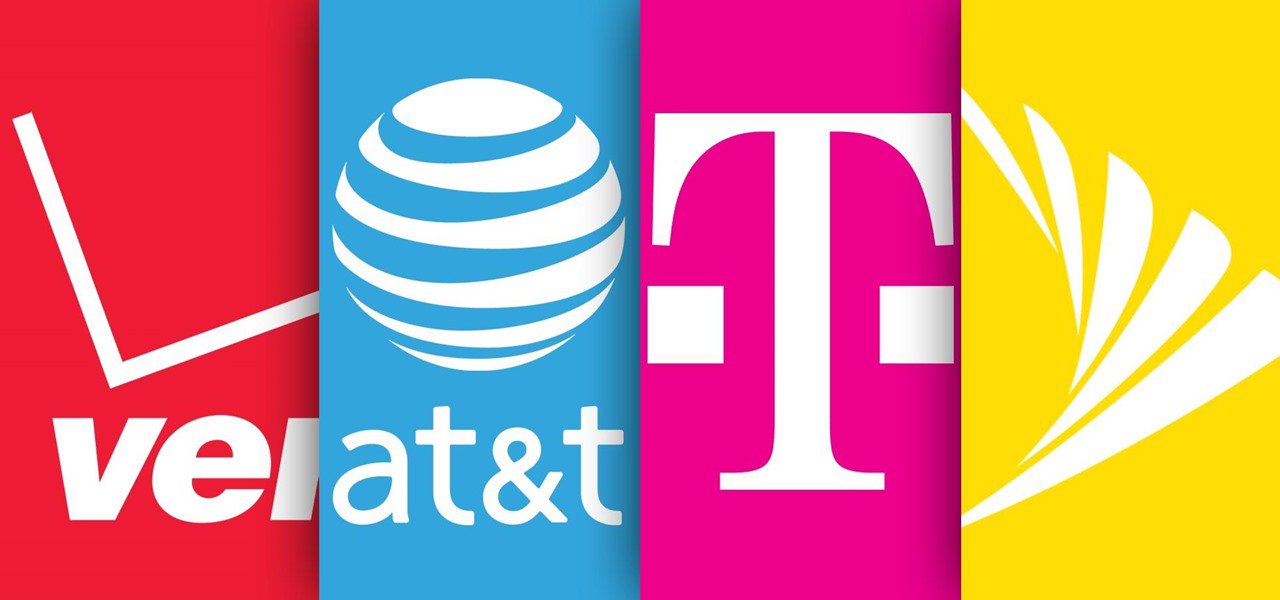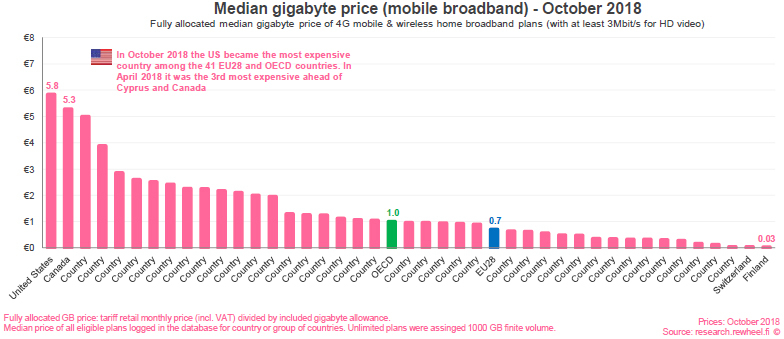In brief: In business, having more players on the field is supposed to foster a more competitive landscape but according to a recent report from Finnish research firm Rewheel, that is not reflected in the state of wireless data pricing in the US.

According to a recent report from Finnish research firm Rewheel, the US is the fifth most expensive market among 41 European Union and OECD countries in terms of median pricing per gigabyte (on plans with at least 1,000 minutes and 3Mbit/s for HD video) despite the fact that prices have dropped 11 percent since April.
Furthermore, the firm found that the US is the most expensive country among the same group with regard to median gigabyte pricing for mobile broadband (4G mobile and wireless home broadband plans with at least 3Mbit/s for HD video).
Rewheel notes that the median gigabyte price of smartphone plans in the US is four times higher than in European Union markets with four major network operators. The median gigabyte price itself is a whopping 16 times higher in the US than in competitive four-carrier European markets.
As such, Rewheel classifies the US as an outlier four-MNO market with much higher prices that are typically found in three-carrier markets with less competition.
This calls into question whether or not Sprint’s plan to merge with T-Mobile is in the best interest of consumers. The two carriers argue that consolidation will allow them to expedite the rollout of 5G technology and better compete with powerhouses Verizon and AT&T.
https://www.techspot.com/news/77519-us-among-most-expensive-markets-world-purchase-wireless.html
